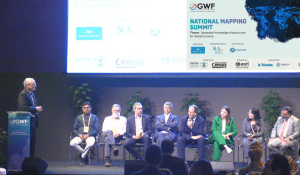Cities worldwide are undergoing a transformative phase as they recover from the challenges posed by the pandemic and aim to fortify themselves against future uncertainties.
For example, Almaty City in Kazakhstan has taken rapid strides in making itself an attractive destination for students and workers post-pandemic. The city has created a thriving local economy and focused on improving livability parameters, including smart infrastructure, digital services, and building a cosmopolitan atmosphere.
In December 2022, Deloitte and ThoughtLab joined forces to conduct a survey involving 200 city leaders and 2,000 citizens globally. The study sought to gain valuable insights into how cities are proactively building their capacity for change to effectively adapt to forthcoming opportunities and challenges.
The study pinpoints that city leaders must prioritize the development of their capacity for change across various domains in order to realize their vision of becoming the cities of the future.
Addressing the Global and Regional Challenges
Cities are confronted with several pressing global challenges, including climate change, pollution, and public health concerns, encompassing mental health issues. As city leaders grapple with these multifaceted challenges, they recognize the potential strain on social care services in the years ahead.
This is shown in the below figure:
In addition to global issues, cities continue to tackle region-specific challenges. Developing economies contend with traffic congestion and public safety concerns, while developed economies primarily confront housing insecurity.
This is shown in the below figure:
The survey revealed a discernible shift towards rapid digitization and enhanced digital accessibility within cities. This digital transformation is geared towards better service delivery and streamlined governance. Additionally, cities are resolute in their efforts to restore public trust, bolster resilience against climate change, and cultivate a talent ecosystem to thrive in the future.
Bridging the gap by building on key areas of progress
City leaders must also navigate the expectations of their citizens, a task that necessitates bridging the divide between what citizens anticipate from their local governments and what cities can feasibly deliver. Acknowledging such disparities, the surveyed city leaders reported the formulation of plans to bolster their capacity for change. The objective is to adapt to the evolving needs and expectations of constituents effectively.
The survey highlighted several key areas where city leaders have made significant progress in building their capacity for change:
Rebuilding Public Trust: Efforts to enhance transparency, accountability, and inclusivity have been pivotal in restoring public trust in city governance.
Driving Digital Transformation and Innovation: Cities are embracing digital advancements to revolutionize their services and improve the quality of life for their residents.
Building Future-Ready Infrastructure: Investments in resilient and sustainable infrastructure are imperative to prepare for future challenges.
Addressing the Talent Gap: Cities are proactively nurturing a skilled workforce to meet the demands of the future economy.
By actively building the capacity for change, cities can thrive in the face of uncertainty, becoming resilient hubs that lead the way in innovation, sustainability, and citizen well-being.
Necessary Future Steps
According to the Study, City leaders need to deploy a mix of strategies to tackle big challenges and build resiliency for future shocks. Close relationships by building partnerships with different stakeholders will be key to achieving collective outcomes for the city:
Leading with trust: Building public trust is key. City leaders should have a deeper focus on social inclusion and building trust in communities and local networks.
Building cross-border partnerships: Building partnerships with a broader ecosystem should be the focus in the private sector to drive a collective impact.
Strengthening new tech and data governance: City leaders should focus on improving the governance of new emerging technologies, enabling data-sharing, and ensuring data privacy and security.
Driving green transition: City leaders should use artificial intelligence and data analytics to drive decision-making. This can be done by retrofitting older buildings and structures with green technologies to improve energy efficiency.











